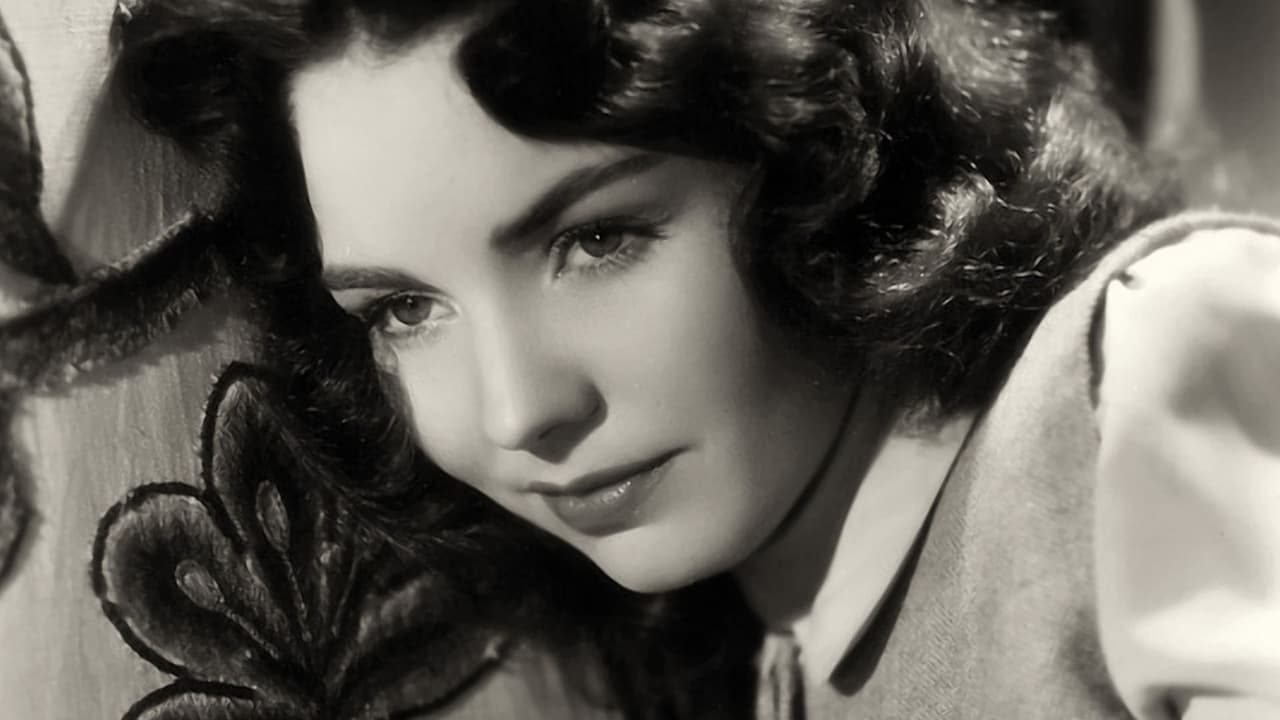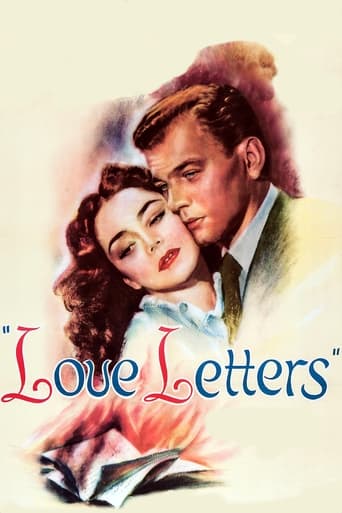



A movie that not only functions as a solid scarefest but a razor-sharp satire.
View MoreIt is both painfully honest and laugh-out-loud funny at the same time.
View MoreWhile it doesn't offer any answers, it both thrills and makes you think.
View MoreThe film never slows down or bores, plunging from one harrowing sequence to the next.
View MoreIt is not right that Random Harvest, which came 3 years earlier and played on very similar plot notes, is considered a timeless classic whereas Love Letters has somehow been relegated to the dustbin of cinematic history and is almost impossible to find these days.First, the teaming of Cotton and Jones is magical. Cotton could not give a bad performance if his life depended on it (he was always the first casting choice for an Orson Wells project) and Jones had a rare on screen charisma which is unequalled in the present day. (Three years after this project, they did Portrait of Jennie together, a truly perfect and one of a kind production which leaves Random Harvest in its dust.) Love Letters is not perfect but it is a still a masterpiece. The first act is flawless, especially the clever transition from Cotton's uneasy sense that writing love letters for another man is itself an act that only lead to calamity... to the almost Hitchcockian mystery as to what actually happened to Jones' character.The second act however seems a bit long and perhaps stretched. Ninety minutes might have made a tighter film.In spite of such quibbling Love Letters is a remarkable piece of entertainment and deserves more attention from cinephiles than it is getting.
View MoreIn the midst of WWII, Ayn Rand was asked by producer Hal Walllis to adapt an intelligent but flawed novel by Chris Massie which concerned a girl who develops amnesia due to a sort of battleshock when she is convicted of murdering her husband, over love letters of hers he tried to burn--letters from him. What we learn in the movie is that another man had actually written them. So this story is a mystery, a romance, and a psychological study at the same time. Allan Quinton, played by Joseph Cotten, becomes a badly-wounded war hero and has to fight back from the brink of despair. Before he nearly dies and is shipped home, he has written the love letters in question to a girl he met once and doesn't even know--because he wanted to say the things that are important to him to a girl he didn't know, to make the expressing easier. But the girl, Victoria Remington, beautifully played by Jennifer Jones, understands. She too speaks of the beautiful hopes of life, the shining dream of one's hopes to be made real by giving up the inconsequential and by risking to attain them. He writes them for his friend who is a man without conscience out to grab whatever he can. The friend Roger Moreland, played by Robert Sully, ignores his warning and married Victoria on the strength of the letters. The tragedy that follows results in his death, and Victoria's being tried and sent to prison and then released to her guardian, played by Gladys Cooper. The theme of risk is played out a second time when Allan learns what has happened, that he in effect was the murderer in the case, and falls in love with Victoria--now suffering amnesia and calling herself Singleton--all over again. They take the risk that she will regain her memory and hate him and marry. Then gradually, haunted by terrible memories, she does "wake up"--leading to a bang-up revelation about the murder which Victoria did not commit and one of the most beautiful and memorable endings in film history. The cast is very good, especially Cecil Kellaway and Jennifer Jones; but the other bright stars of the film are William Dieterle's direction, the lighting, set, music and dialogue. Only a handful of sensitive films in cinema history have maintained context/mood and still expressed ideas as expertly as "Love Letters" does. One of the greatest and best-loved films of all time. And the most beautiful.
View MoreI have seen this video many times mainly because I absolutely adore Jennifer Jones.She is an awesome beauty and I must be honest, a sexual fantasy of mine.The fact she is playing a Canadian orphan in the film at least explains her accent.The story of an amnesiac who gradually becomes her true self is OK but why oh why does Hollywood insist on producing "twee" versions of "little 'ole England" in California complete with "gargoyles"? Surely English actors playing English characters in England would have been more authentic.Just to throw in a few English actors (Gladys Cooper and a boy in the London Journal reading room plus stock film company footage of London England, is not convincing enough to the film connoisseur).Also how could a private home have a view overlooking Trafalgar Square!This is unsubtle image - fixing on innocent susceptible eyes.I am sure Americans cringe just as much when they hear unconvincing American accents from non-U.S. nationals.Jo Cotten had the great good fortune to appear to my knowledge with Ms Jones also in Duel in the Sun (1946)/Portrait of Jennie (1948) and Since you went away (1944).Therefore they had already done a film together and their scenes worked well and I almost found myself forgetting his "English" accent! JJ never looked more lovely than in this 1945 picture and there is a very memorable scene when Alan (Jo Cotton) comes back to his house in Essex and receives a call from Dilly Carson (Ann Richards) that "Singleton" appears to have gone missing.Suddenly there is a giggle and the lovely "Singleton" a.k.a.Victoria Moreland, (JJ), pops up from the sofa to surprise Alan- JJ looks absolutely stunning!
View MoreAlthough lacking the thematic elements of screenwriter Ayn Rand's subsequent novels, the script to this movie has an elegant plot and style characteristic of Rand's ever-popular novels The Fountainhead and Atlas Shrugged. Jennifer Jones is stunning as the quintessential innocent. I have watched the movie about three times and enjoyed it tremendously each time.
View More